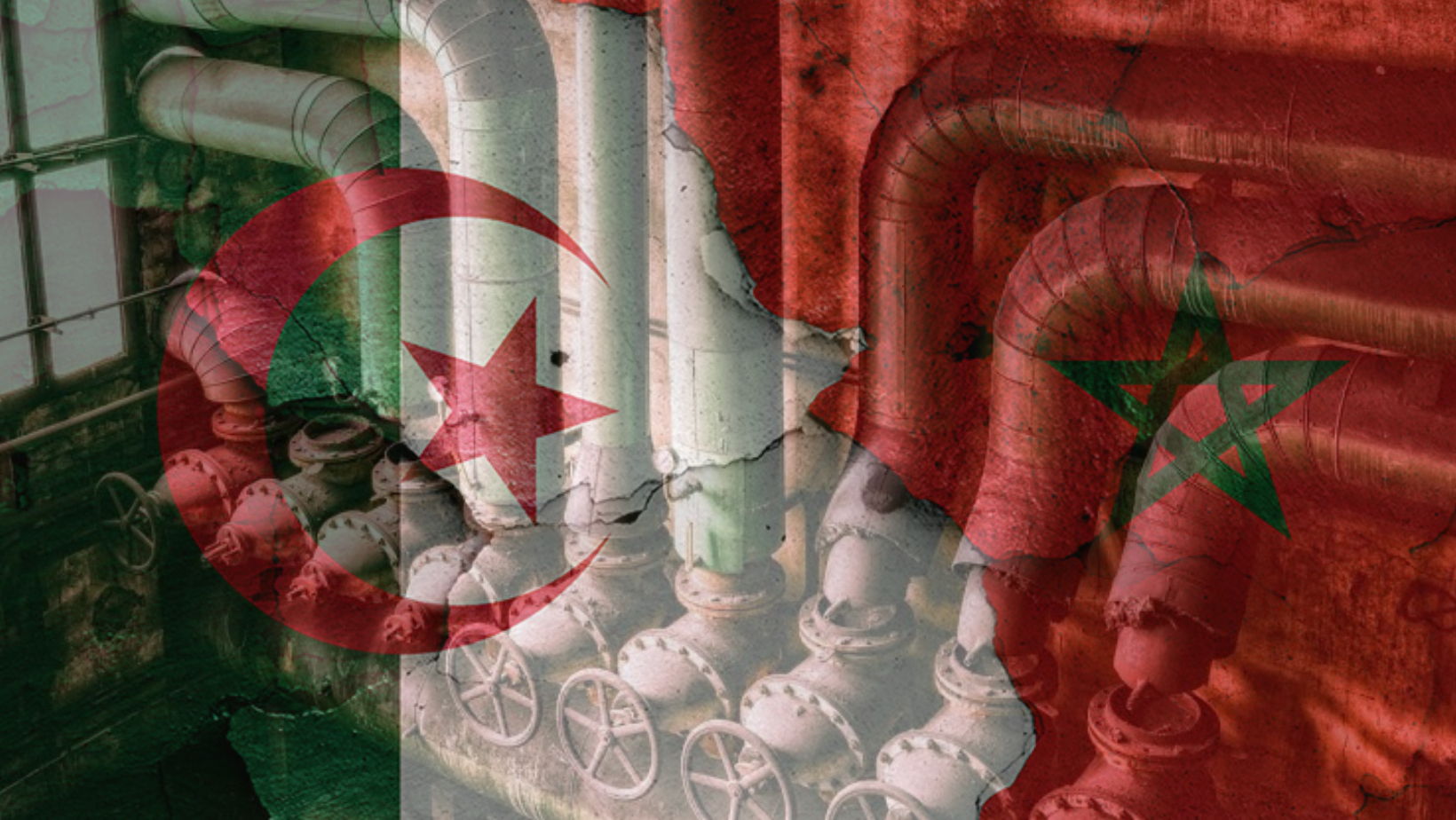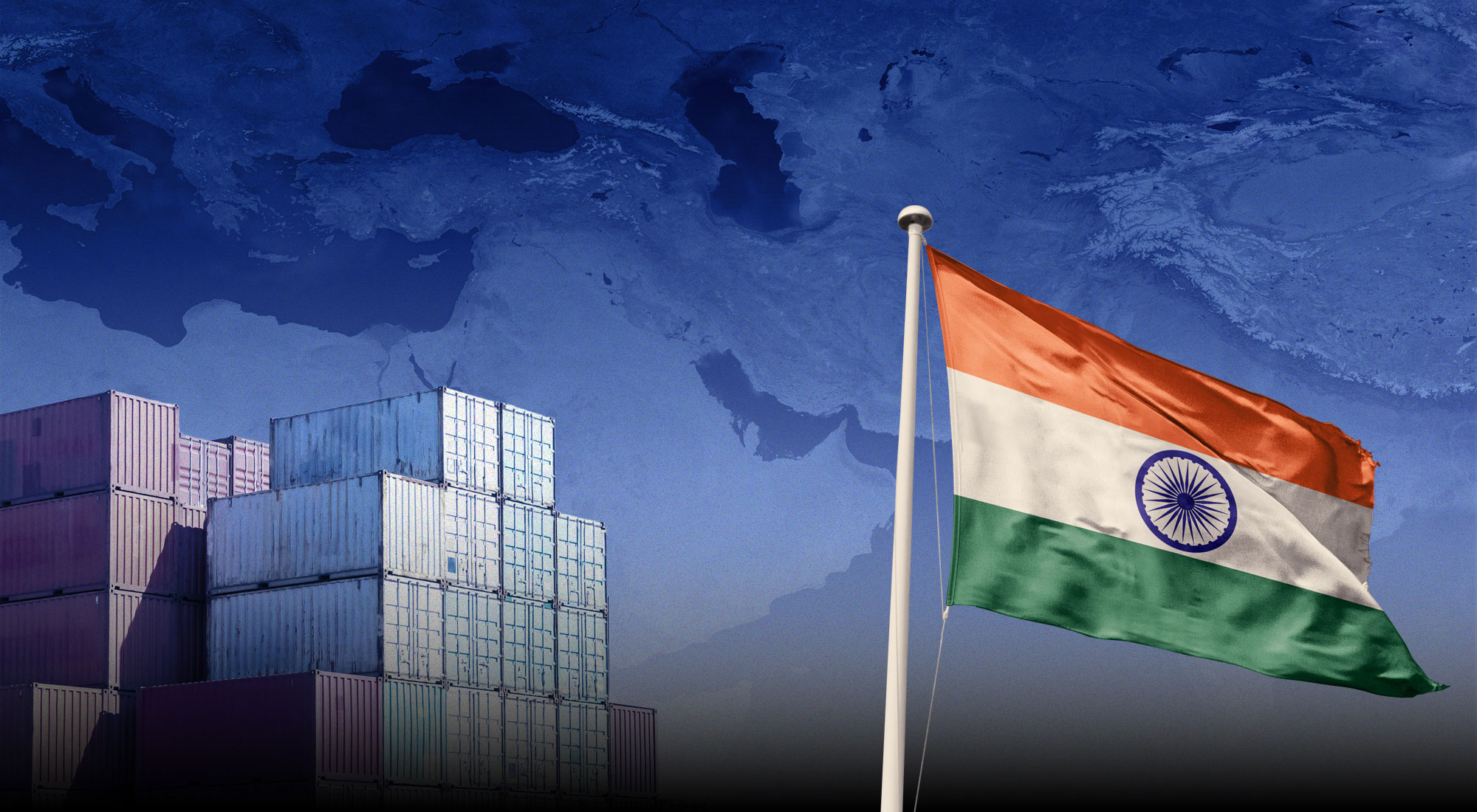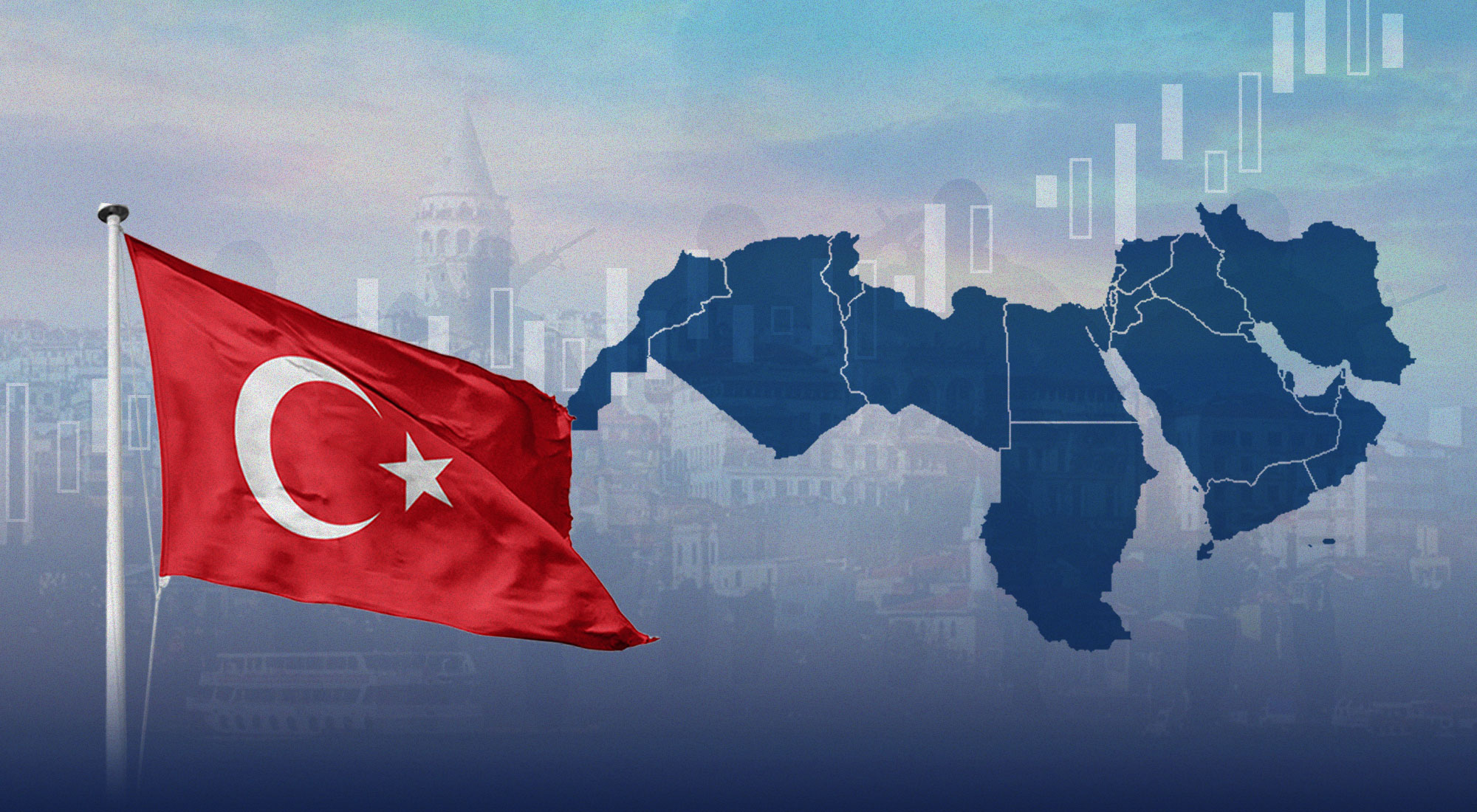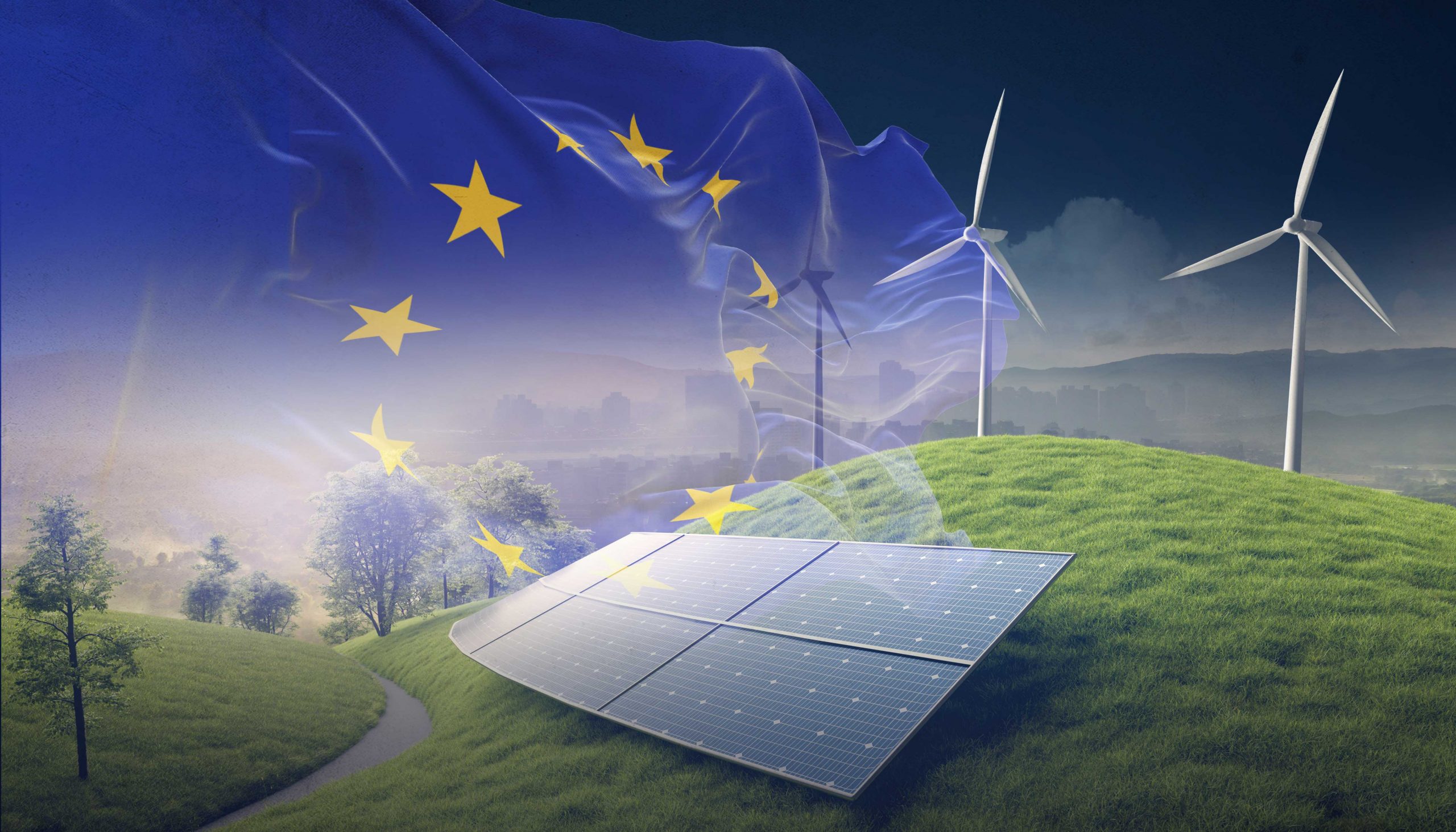The global fallout of the conflict in Ukraine has been particularly visible in the energy domain, where the sanctions implemented against Russia has forced Europe to look elsewhere for energy supplies. In this scramble for gas, particularly controversial as it irremediably postpones ambitious agendas to phase out fossil fuels, European member states have shifted their attention from the now turbulent East, where the economic decoupling with Moscow seems inevitable, to the South, a regional periphery most often neglected, and which draws attention from Brussels and Washington only when pressing security concerns become too impossible to ignore. In the most recent energy-driven push that has taken foreign diplomats, dignitaries, and high-ranking officers in tour of the several capitals of the oil-rich Middle East and North Africa, there is one place that has immediately topped the list of most wanted destinations with the capacity to partially offset the decrease of energy supplies from Russia: Algeria.
An unmissable opportunity
Considering both its geography and pipelines infrastructure, Algeria has been a long-standing partner of Europe in the energy sector. A member of the Organisation of Petroleum Exporting Countries, the country is a major oil and gas producer heavily reliant on hydrocarbon exports.[1] Compared to an increasingly volatile Libya, where the most recent political bifurcation has already had an impact on the country’s fragile oil industry, Algeria also offers far more stable conditions. The times of the Hirak opposition movement, when mass protests brought the regime of president Abdelaziz Bouteflika to an end in 2019, seem long gone and the opposition has been muzzled by a combination of factors that included a repressive authoritarian turn and the protesters’ decision to suspend rallies in the aftermath of the COVID-19 pandemic. The brief transition, which included cosmetic changes to the constitution, an instrumental fight against corruption and elections marked by a low turnout, resulted in a leadership change that gave former prime minister Abdelmajid Tebboune the presidency, while the real power rests firmly in the hands of the military guided by Maj. Gen. Saïd Chengriha.
The political transition was characterised and partially driven by an economic downturn caused by the 2014 oil plunge, which has dramatically eroded the foreign exchange reserves (dwindling from US$121.9 billion in October 2016 to US$42 billion in March 2021). However, the war in Ukraine represented a turning point, providing Algeria with an unmissable opportunity to fulfil its ambitions to finally become an energy hub able to satisfy the demands of European partners desperately looking to diversify gas supplies away from Russia. Driven by higher global demand, the oil spike is relaunching Algeria’s oil output, helping to balance the budget deficit that Algiers has accumulated in the past years.[2] The favourable economic conjuncture is also attracting much needed foreign direct investments (FDI) that could help modernise an ageing oil industry and reinforce production capacity. In this context, the recent agreements signed between the Algerian national oil company Sonatrach and its Italian counterpart ENI are particularly noteworthy. The memorandum of understanding (MoU), signed on the occasion of Tebboune’s visit to Rome and Naples in May 2022, is expected to boost gas exploration and the development of green hydrogen in Algeria, and includes plans for an electricity interconnection project via submarine cables.[3] The deal also confirmed the increase of gas exports from Algeria to Italy from the current 22 billion cubic metres (bcm) per year to 31 bcm, following an agreement reached in April during the visit of the Italian Prime Minister Mario Draghi to Algiers. The additional 9 bcm of extra gas per year (which according to the timeline agreed will be delivered by 2023-2024) will push the offshore Trans-Mediterranean (TransMed) pipeline linking Algeria to Italy through Tunisia to full capacity.
The rift clipping Algeria’s wings
The recent agreements will certainly help consolidate Algeria’s position as one of the main energy suppliers of Italy, helping offset the reduced gas supply from Moscow. However, this remarkable achievement may not be enough to fulfil Algeria’s dreams to play a pivotal role in ensuring energy supplies to Europe from its southern flank. Alongside years of underinvestment in the oil industry, political hurdles are also likely to curtail Algeria’s capacity to ramp up its oil and gas exports. Indeed, the strengthening of bilateral ties between Algiers and Rome starkly contrasts with the deteriorating relations between Algeria and Spain, both engaged in a diplomatic row exacerbated by recent developments. The suspension of the 2002 friendship and cooperation treaty is just the last step of a rapid worsening of bilateral ties mainly driven by Algeria’s resentment towards the new foreign policy course set by the Spanish government on the Western Sahara, which has so far been the main point of contention driving the regional competition between Algeria and Morocco. Indeed, in a surprising move announced in March, the Spanish Prime Minister Pedro Sanchez announced that Madrid finally recognises Morocco’s autonomy plan for the disputed region as the most serious, realistic and credible basis for resolving the conflict, effectively backing Rabat’s position.
The diplomatic shift from an approach based on the respect of the UN resolutions and the principle of self-determination to the autonomy plan, on which Rabat has insisted since 2007, is effectively the result of a year of living dangerously across the narrow Strait of Gibraltar. The origin of the current realignment must indeed be found in a diplomatic row that in April 2021 pitted Madrid against Rabat following the hospitalisation of the leader of the Popular Front for the Liberation of Saguia el-Hamra and Rio de Oro (Polisario Front, the rebel movement fighting for the independence of Western Sahara from Morocco and backed by Algeria) Brahim Ghali in Spain for COVID-19. Reportedly brought to Spain by an Algerian aircraft and under a false name, Ghali spent a few weeks in the Logroño hospital, causing vehement protests in Rabat. The unprecedented rise in the number of migrants attempting to enter the Spanish enclave of Ceuta in May 2021 (with more than 9,000 entries registered in two days alone, including 1,500 children) looked like an inevitable retaliation after reports suggested that the Moroccan police and border guards relaxed controls.[4] The rising number of migrants arriving in Spain along the Western Mediterranean route likely convinced the Moncloa to reverse its stance. The dismissal of the former foreign minister Maria Aranzaz ‘Arancha’ Gonzalez Laya, who paid the price for the Ghali affair, was certainly an early indication of the re-elaboration of the Western Sahara policy going on in Madrid since the last summer.
The Western Sahara litmus test
By escalating migratory pressure towards Ceuta and Melilla, often the target of the irredentist rhetoric of Rabat, Morocco touched a raw nerve in the Spanish decision-making process, where Sanchez’s minority coalition government has recently been under increasing pressure following revelations about its use of the powerful Pegasus spyware.[5] It also confirmed Morocco’s increasing confidence in imposing its agenda, whose main goal is to rally broader support to legitimate its claims over a Western Sahara that increasingly looks like a litmus test to see where major partners really sit in a reconfigured and multipolar Maghreb. The Makhzen’s assertiveness certainly increased after US recognition of the Moroccan sovereignty on the disputed territories in exchange for the re-establishment of diplomatic ties between Rabat and Israel. The deal, reached at the twilight of the Trump administration, represented the culmination of a transactional policy that pushed Morocco into the normalisation front established after the Abraham Accords, which included Bahrain, Israel, Sudan, and the UAE. At the same time, the US’ new course on the Western Sahara, which has not been reverted by the Biden administration, certainly contributed to the military escalation in the disputed territories, where the Polisario Front had already declared the end of the ceasefire on 13 November 2020 in a context characterised by renewed fighting in the buffer zone of Guerguerate.
The meltdown of a frozen conflict, which has so far been limited to sporadic raids of the Polisario against the outpost of the Forces Armées Royales (FAR, the Moroccan Army) and Moroccan air and drone strikes against Saharawi fighters, has re-introduced a new hotspot in North Africa. Together with the frozen conflict in Libya and the spiralling jihadist violence in the Sahel, the resumption of the struggle in Western Sahara risks plunging the entire North African region into a new season of chaos, a decade after the political upheavals of the Arab Spring. Damage control has so far been successful in keeping a lid on tensions, and military drills on both sides of the border (closed since 1994) seem more like posturing than real threats to the peace and security of the region. In both Algiers and Rabat, there is clearly no appetite for a new Sand War or renewed conflict over Western Sahara. Morocco is leveraging the US’ foreign policy shift to consolidate its position, pushing European partners to get on board in the recognition of its territorial control over the disputed territory. At the same time, domestic difficulties have certainly discouraged Algeria from using its hard power in support of the Polisario for the time being. However, as the regime seeks to consolidate its legitimacy and new constitutional amendments allow the Armée Nationale Populaire (ANP, the Algerian army) to assume a pro-active approach in the region, the Western Sahara can still be a useful card to play in uniting public opinion against a common enemy while diverting attention from more pressing issues at home.
The weaponization of everything
In general, the new generations in Algeria seem much more worried about increasing their representativeness and establishing a real democratic system than supporting a cause that has its roots in a very remote and distant past. For this reason, it looks increasingly evident that the most recent diplomatic tensions between Algeria and Morocco have been driven much more by the normalisation trend and Rabat’s decision to re-establish ties with Israel than by the resumption of the conflict in Western Sahara. Indeed, Algiers’ decision to severe diplomatic relations with Morocco came immediately after the visit of the Israeli Foreign Minister Yair Lapid to Rabat in August 2021. It is interesting to note that on that occasion, Lapid said that Algeria was getting closer to Iran, a further indication of a foreign policy elaborated according to the establishment of new regional blocs stemming from the realignment driven by the normalisation process. Lapid’s remark certainly contributed to the Algeria-Morocco diplomatic breakup, in a context marked by escalating tensions following Rabat’s support for the auto determination of the Kabyle region in Algeria, which made a parallel with Algiers’ backing of the Polisario.[6]
The new rift in the Maghreb also produced negative externalities that went beyond the already divisive local context, especially after Algeria’s decision not to renew the 25-year contract to supply gas to Portugal and Spain via Morocco along the Maghreb-Europe Gas Pipeline (MEGP). The 12 bcm per year gas pipeline ceased operation in October 2021, effectively depriving the Alawite kingdom of its royalties worth 0.5 bcm of gas, which made up half of Morocco’s average domestic consumption per year. While Algeria confirmed that it would nevertheless continue to meet its commitment to supply natural gas to Madrid via the 10.5 bcm per year offshore Medgaz pipeline, and by boosting the export of liquified natural gas (LNG) from its ports, oil politics became the new frontier of the confrontation between the two Maghrebi rivals.[7] Just like the migratory pressures on Spain facilitated by Rabat during the Ghali affair, Algeria’s decision to close off the MEGP to punish Morocco for getting closer to Israel is part of what has been successfully described as the weaponization of everything,[8] in which regional contenders are using every means and measures short of war to attain their strategic goals.
A posteriori, the closure of the MEGP could well be interpreted as a self-inflicted wound for Algeria, especially in times of gas bonanza. At a closer look, however, higher prices on the oil market this year mean that revenues will keep coming in a significant amount, also allowing Algerian authorities to opt to move some of their gas supplies from the less profitable long-term contracts to the more lucrative spot market. Having already halved the volume of gas exported to Spain before the current diplomatic spat with Madrid, Algeria certainly feels more confident in striking a fine balance between the temptation to go all in and completely cut gas supply to Madrid for its refashioned Western Sahara policy and keeping the constant flow of revenues coming into its coffers. Threats to increase the price of gas delivered to Spanish customers, made in April by the CEO of Sonatrach Toufik Hakkar, are a case in point and came, not coincidentally, when relations between Algiers and Madrid were turning from bad to worse. Indeed, at that time, Morocco and Spain were discussing how to revert the flow of the MEGP to provide natural gas bought on the international markets to Rabat. The discussions made Algiers increasingly uncomfortable, pushing the Algerian government to threaten to terminate the contract with Spain should the natural gas coming from Algeria be diverted to Morocco.
The scramble for African gas
The hybridization of war is not only transforming the EU member states into net importers of the spiralling Maghreb rift but is also pushing their oil policies on a collision course, according to the different policies adopted on the Western Sahara issue. Furthermore, the ramifications of this struggle for regional supremacy are also expanding to the African continent, where the regional policies of both Algiers and Rabat are still entangled in the zero-sum game already informing their worsening bilateral relations. In particular, the energy sector is becoming a battlefield, where the scramble for African gas has gained momentum, especially in the aftermath of the conflict in Ukraine. Morocco, for example, has sped up long-term plans to rival its eastern neighbour, based on an ambitious strategy that would eventually make Rabat a powerhouse in the export of both fossil fuels and renewable energy. As part of its new Africa policy, emphasized by Rabat’s return to the African Union (AU) in 2017, the 5,560km Nigeria-Morocco Gas Pipeline (NMGP) has been recently fast-tracked following the approval of the government in Abuja. The pipeline would be an extension of the existing gas pipeline supplying Nigerian gas to Benin, Ghana and Togo since 2010. On 2 June, the Nigerian government tasked the Nigeria National Petroleum Company to enter into an agreement with the Economic Community of West African States for the construction of the pipeline, which would eventually bring Nigerian gas to West Africa and Morocco, and from there to Europe as well starting from 2046.
Interestingly, the acceleration came after the recent progress made by Algeria in moving forward a rival project known as the Trans-Saharan Gas Pipeline (TSGP). With a capacity of 30 bcm per year, the TGSP is a 4,128km project that would eventually carry natural gas from Nigeria to Algeria via Niger, reinforcing Algiers’ capacity to satisfy its domestic needs as well as boost gas exports to Europe. The Niamey Declaration signed in February 2022 between the oil ministers of Algeria, Niger and Nigeria has relaunched the project, which had been dormant for several years partly due to security concerns about the pipeline transiting an increasingly volatile Sahel region, where several terrorist groups are active. Considering its abundant reserves, Nigeria is evidently well poised to provide Europe with an increasing amount of natural gas that would partially offset the reduced supply from Russia due to the ongoing conflict in Ukraine. Furthermore, both the NMGP and the TSGP would evidently be valuable instruments to satisfy the increasing domestic demand of developing West African and Maghreb states. The risk, however, is that these pipeline projects would fall victim to the deepening rift between Algeria and Morocco, which is forcing both oil and gas exporters in Africa (such as Nigeria) and energy importers in Europe (like Italy and Spain) to navigate a highly confrontational and divisive context, irradiated by a regional rivalry that is extending well beyond the traditional boundaries of the Maghreb.
References
[1] According to data from the World Bank, over 2015-2020, Algerian oil exports accounted for 19% of the Gross Domestic Product (GDP), 94% of total exports and 40% of budget revenues: https://thedocs.worldbank.org/en/doc/65cf93926fdb3ea23b72f277fc249a72-0500042021/related/mpo-dza.pdf.
[2] Oil production has already increased from 175.9 million tons of oil equivalent (toe) in 2020 to 185.2 million in 2021, while export revenues rose from US$20 billion to US$34.5 billion. See, Francisco Serrano, “Higher Oil prices are Giving Algeria’s Regime Breathing Room,” May 25, 2022, Middle East Institute, https://www.mei.edu/publications/higher-oil-prices-are-giving-algerias-regime-breathing-room.
[3] Gas production from the areas covered by the MoU is expected to equal 3 billion cubic metres (bcm) per year and will contribute to increasing Algeria’s gas export capacity to Italy. The MoU also covers technical and economic evaluation for a green hydrogen project in Bir Rebaa North. See, “Italian Energy Giant Eni Signs Deal to Boost Algerian Gas Supply,” Al-Jazeera, May 26, 2022, https://www.aljazeera.com/economy/2022/5/26/italys-power-giant-eni-inks-deal-to-boost-algerian-gas-imports.
[4] Umberto Profazio, “Morocco-Europe Relations Reach an Inflection Point,” September 6, 2021, International Institute for Strategic Studies (IISS), https://www.iiss.org/blogs/analysis/2021/09/morocco-europe-relations.
[5] The government has been accused of using the spyware made by the Israeli company NSO Group to hack the mobile phones of political figures of the independent movements in Catalonia. The revelations, which caused the dismissal of Paz Esteban (head of the Spanish intelligence agency), also led to an unexpected turn, after the government said that the cell phones of Sanchez and the Defence Minister Margarita Robles were hacked as well by an unnamed third party. See, Raphael Minder, “Spain Says Cell Phones of Prime Minister and Defense Minister Were Hacked,” May 2, 2022, New York Times, https://www.nytimes.com/2022/05/02/world/europe/spain-prime-minister-pegasus-spyware.html. Allegations that Morocco used Pegasus frequently emerged last year but have been always denied by Rabat.
[6]At the same time, Algiers decided to move forward with the blacklisting of the separatist Mouvement pour l’autonomie de la Kabylie (MAK) and blamed Morocco for the fires that engulfed the restive region east of Algiers in the summer of last year.
[7] Umberto Profazio, “Oil Politics Set to Worsen the Maghreb Rift,” September 29, 2021, NATO Defence College Foundation, https://www.natofoundation.org/maghreb/oil-politics-set-to-worsen-the-maghreb-rift/.
[8] Mark Galeotti, The Weaponization of Everything: A Field Guide to the New Way of War (New Haven and London: Yale University Press, 2022).








